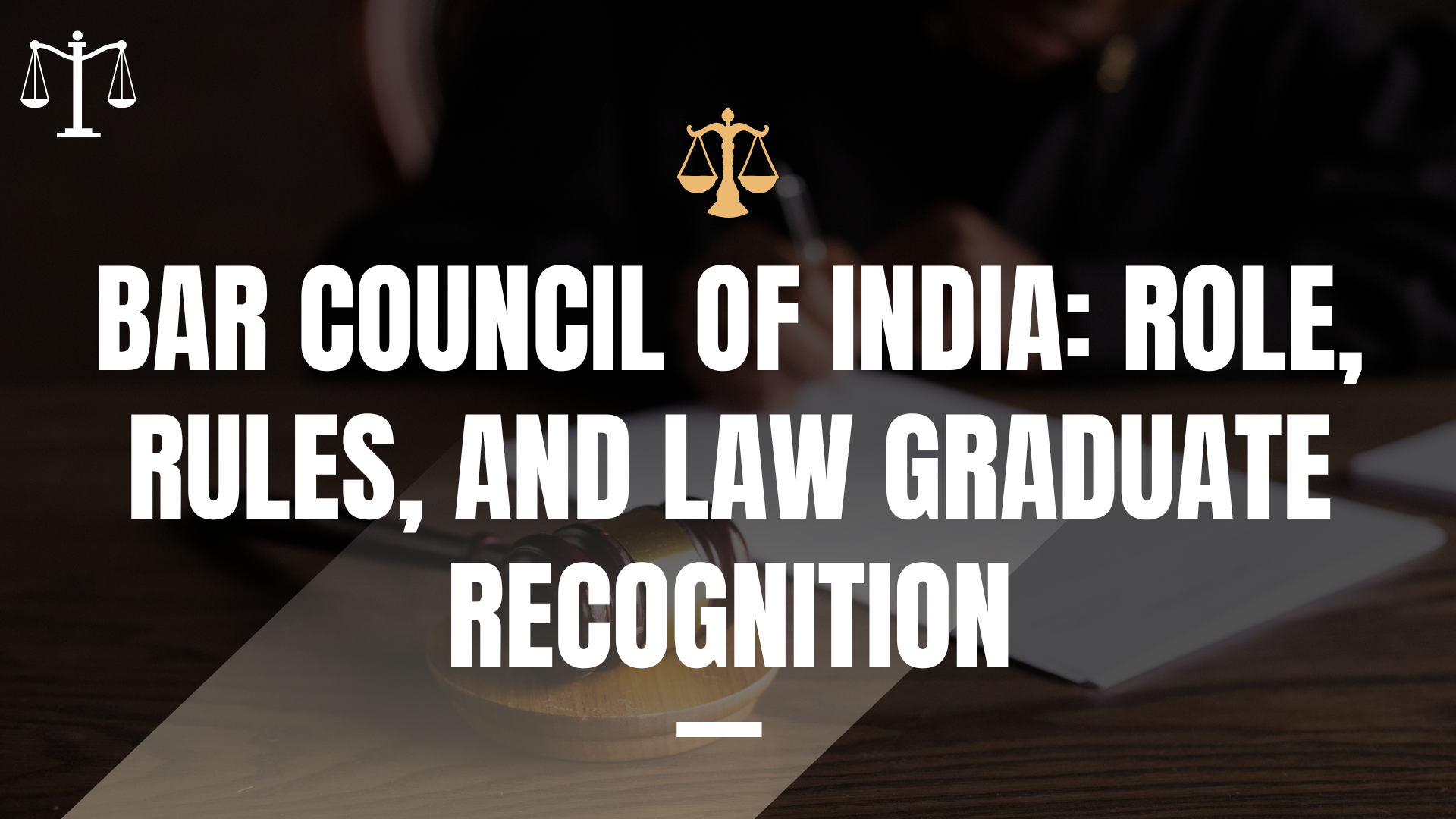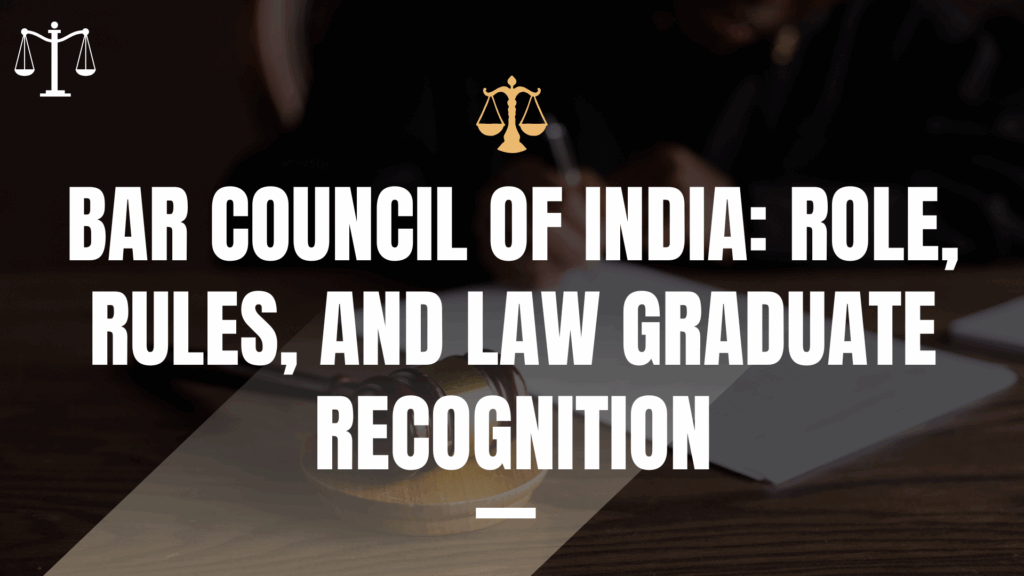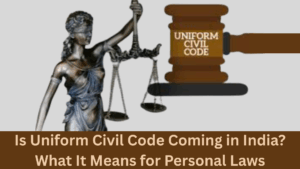We suggest reading this post to find essential information on the Bar Council of India: Role, Rules, and Law Graduate recognition so that you can choose wisely.
Bar Council of India
The Advocates Act of 1961 created the Bar Council of India (BCI) as a legal authority to oversee legal education and the legal profession in India. The BCI is the highest body in charge of attorneys and law schools in the country. It makes sure that professional standards and academic rigor are maintained. If you want to be a lawyer, law student, or legal educator, you need to know what the BCI does, what its standards are, and how it decides who to recognize.
This page gives a full picture of the Bar Council of India’s job, the laws it enforces, and how it recognizes legal graduates from Indian and international schools.
What is the Bar Council of India?
The Ministry of Law and Justice set up the Bar Council of India as a legal organization to do the following:

- Controlling the legal profession
- Setting criteria for legal education
- Putting lawyers on the list of state bar councils
- Taking action against attorneys who break the rules
- Setting up and changing the Code of Ethics for lawyers
The BCI is based in New Delhi and works closely with state bar councils, who are in charge of registering and regulating attorneys in each state.
More Information: Get Here
Bar Council of India Overview
| Key Area | Details |
|---|---|
| Statutory Body | Bar Council of India (BCI) |
| Established Under | Advocates Act, 1961 |
| Primary Role | Regulates legal profession and education in India |
| Degree Recognition | Only BCI-approved institutions (India); selective foreign degrees |
| Enrollment Process | Law degree → State Bar Council → AIBE → Certificate of Practice |
| Online Degrees | Not recognized for bar enrollment as of 2025 |
| Disciplinary Authority | Yes – Monitors ethical conduct of lawyers |
Key Functions of the Bar Council of India
1. Legal Education Oversight
- The BCI sets rules for law schools and universities all throughout India.
- It gives the green light to legal degrees (LLB, LL.M) from schools that fulfill its academic and infrastructural criteria.
- On its official website, it constantly posts the list of law schools that are approved.
2. Enrollment of Advocates
- Law graduates must register with their State Bar Council after getting an LLB degree that is authorized by the BCI.
- After they sign up, they have to pass the All India Bar Examination (AIBE) to get a Certificate of Practice.
3. Professional Behavior and Ethics
- All advocates must follow the BCI’s Code of Conduct.
- It keeps an eye on transgressions and can punish them with suspension or disbarment.
4. Changes to the law and ways to settle disputes
- The BCI helps the government with legal policy and suggests changes to the court system.
- It can help settle disagreements between attorneys and clients or between lawyers.
What Does the BCI Approve for Law Degree Recognition?
1. Colleges of Law in India
- Only schools that the BCI has authorized can offer recognized LLB or integrated legal degrees, like the BA LLB or BBA LLB.
- An LLB course lasts for either
- Five-year legal degree after high school
- After graduation, you can get a 3-year LLB degree.
2. Degrees in Foreign Law
- Law graduates from colleges outside the country must apply to the BCI to have their degree recognized.
- If they get permission, they may have to take the AIBE or a similar test to work in India.
- The BCI has a list of foreign legal degrees that are accepted, notably from the UK, USA, Australia, and Canada.
3. Online Law Degrees
- The BCI does not accept any entirely online LLB degrees for advocate admission as of 2025.
- Students must get their legal education at BCI-approved schools in person or in a hybrid format.
Important Rules by the BCI
| Rule Category | Description |
|---|---|
| Legal Education Rules | Define minimum standards for infrastructure, faculty, curriculum, and admission |
| Enrollment Rules | Specify the process for enrollment with State Bar Councils |
| AIBE Regulations | Guidelines for conducting the All India Bar Examination |
| Disciplinary Rules | Procedures for investigating professional misconduct |
| Foreign Degree Recognition | Framework for Indian equivalency of foreign law qualifications |
Final Thoughts
The Bar Council of India is very important for keeping the legal profession in India honest and high-quality. Its structure makes sure that only competent and honest people may operate in the legal field, from giving law schools their approval to certifying lawyers.
The initial stage for people who want to become lawyers is to go to a BCI-approved school and learn the BCI’s rules. As legal education changes, it’s more important than ever to know BCI’s regulations and standards for recognition.
We’re really happy that you took the time to read this content on our site.





